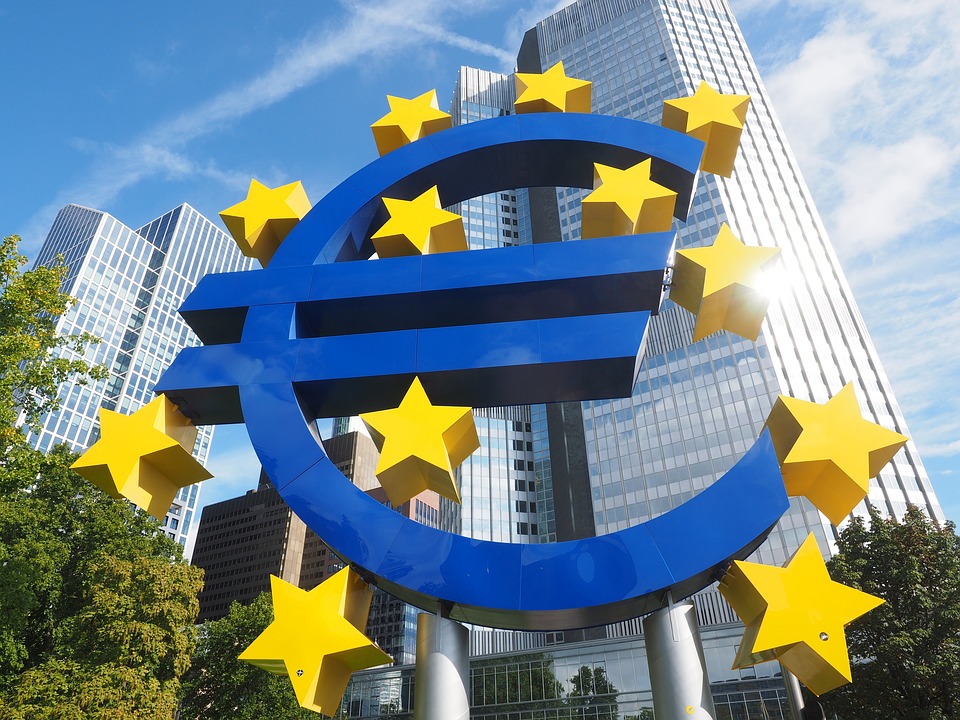Euro zone bond yields rise after hot Spanish inflation data
Euro zone government bond yields climbed sharply on Monday in the wake of stronger-than-expected Spanish inflation data, as investors looked towards the European Central Bank's (ECB) interest rate decision on Thursday.

Euro zone government bond yields climbed sharply on Monday in the wake of stronger-than-expected Spanish inflation data, as investors looked towards the European Central Bank's (ECB) interest rate decision on Thursday. Inflation in Spain, when adjusted to compare across the euro zone, was 5.8% year-on-year in January, up from 5.5% in December, data showed on Monday. That was well above analysts' expectations for a 4.7% reading.
The data caused euro zone bond yields, which move inversely to prices, to jump. Germany's 10-year government bond yield, the benchmark for the bloc, rose to as much as 2.315%, its highest since Jan. 6. It was last up 7 basis points (bps) at 2.309%. Italy's 10-year yield jumped as much as 10 bps, also to its highest since Jan. 6. It was last 8 bps higher at 4.312%, while Spain's 10-year yield was last up 7 bps at 3.343%.
The spread between German and Italian 10-year yields widened sharply after the data, creating the biggest gap since Jan. 4 at around 205 bps. It was last at 198 bps. "The Spanish CPI was much higher than expected, and this caught markets off guard," said Antoine Bouvet, senior rates strategist at ING, referring to the consumer price index data.
Investors are set for a busy week, with euro zone inflation data and the Federal Reserve's latest decision due on Wednesday, the Bank of England and the ECB on Thursday, and U.S. employment data on Friday. The ECB is set to raise interest rates by 50 bps this week, taking its main rate to 2.5%, the highest since 2008.
"The main focus on the ECB this week will be the signals for the March meeting," said Jussi Hiljanen, head of European rates strategy at Swedish bank SEB. Traders will be looking for whether officials signal they are likely to hike again by 50 bps, or hint that a step down to a 25-bp increase is a possibility.
Florian Ielpo, head of macro at Lombard Odier Asset Management, said: "The ECB’s war against inflation is far from over." He added: "What we're expecting is that the ECB's tone should remain firm."
The yield on Germany's 2-year bond, which is highly sensitive to shifts in interest rate expectations, was up 6 bps at 2.651% on Monday. Italy's 2-year yield was 9 bps higher at 3.273%. As of Monday, money markets showed traders expect the ECB to raise its main interest rate to a peak of 3.4% in the late summer, according to Refinitiv data. The market was expecting a peak of 3.3% last week.
The Federal Reserve is widely expected to raise interest rates by 25 bps to a range of 4.5% to 4.75% on Wednesday. Investors broadly expect the Bank of England to hike by 50 bps to 4% on Thursday. Data on Monday showed that the German economy unexpectedly shrank in the fourth quarter. Gross domestic product fell 0.2% compared to the previous quarter, worse than economists' expectations for zero growth.
(This story has not been edited by Devdiscourse staff and is auto-generated from a syndicated feed.)
ALSO READ
New Slander Trial Against Amanda Knox in Italy Despite Previous Exoneration
4 still missing as search continues at Italy's hydroelectric plant rocked by a deadly explosion
Few hopes of finding survivors at Italy hydro plant as search continues
Enel workers to strike after deadly Italy power plant accident
Hopes fade for missing workers at Italy hydro plant










